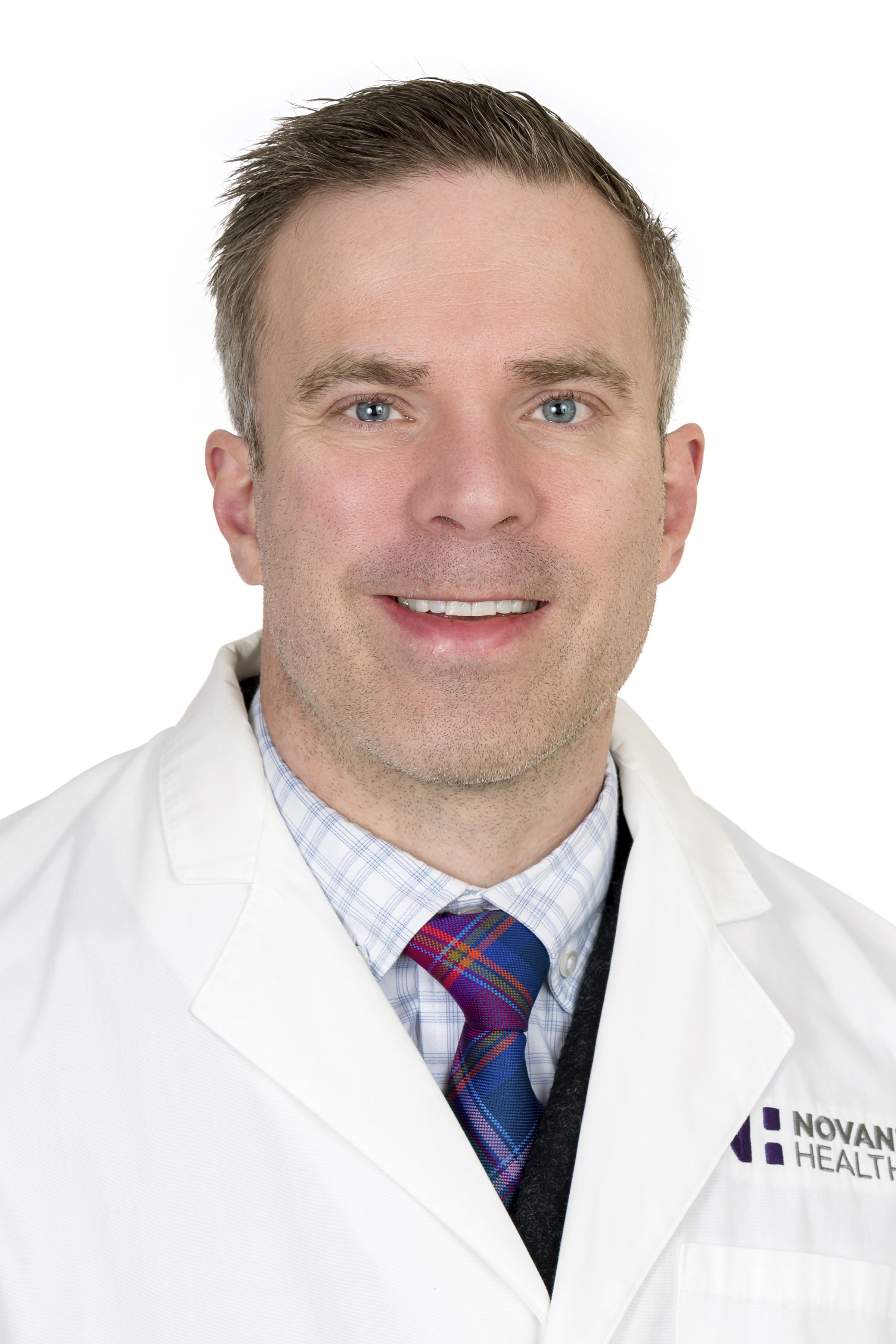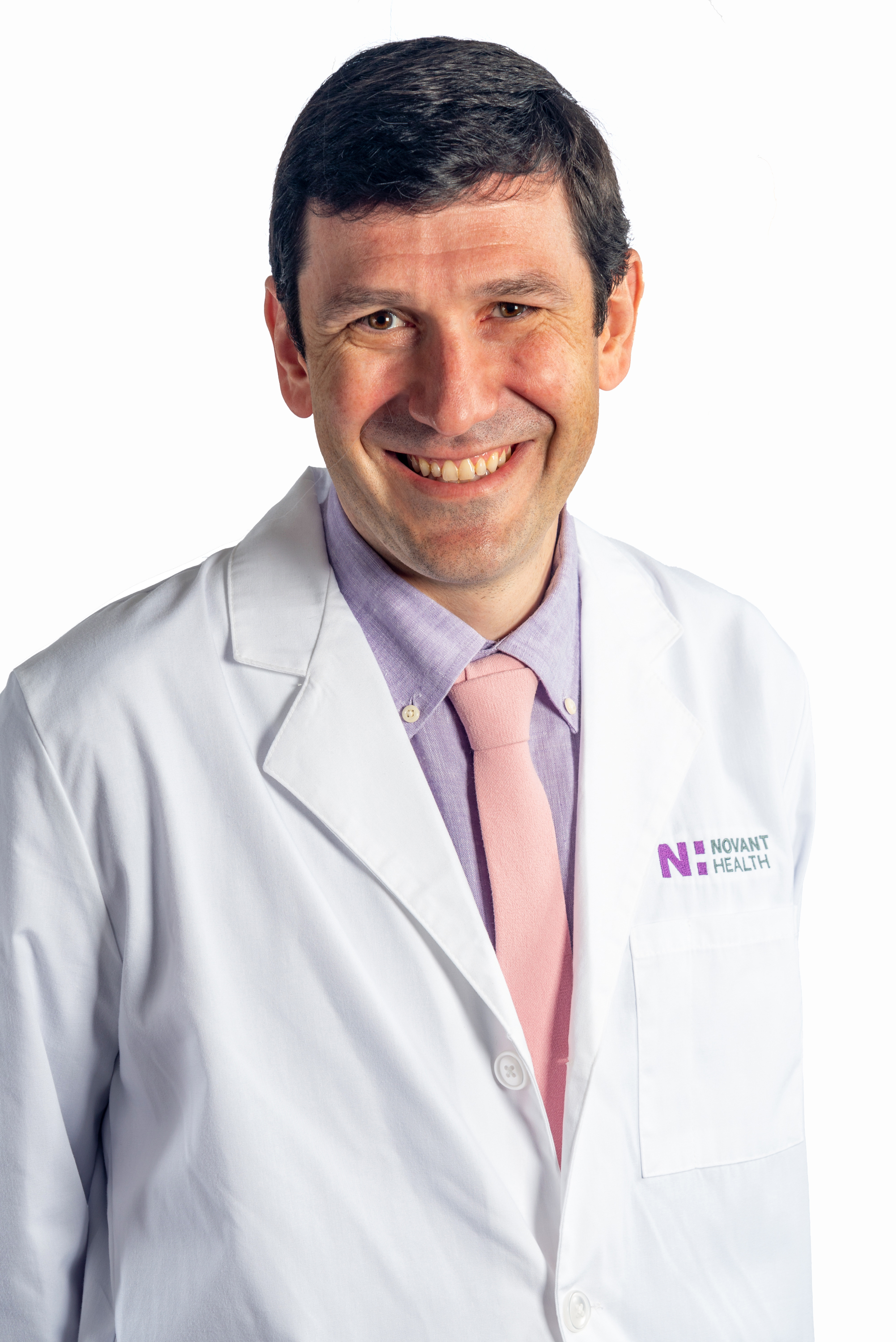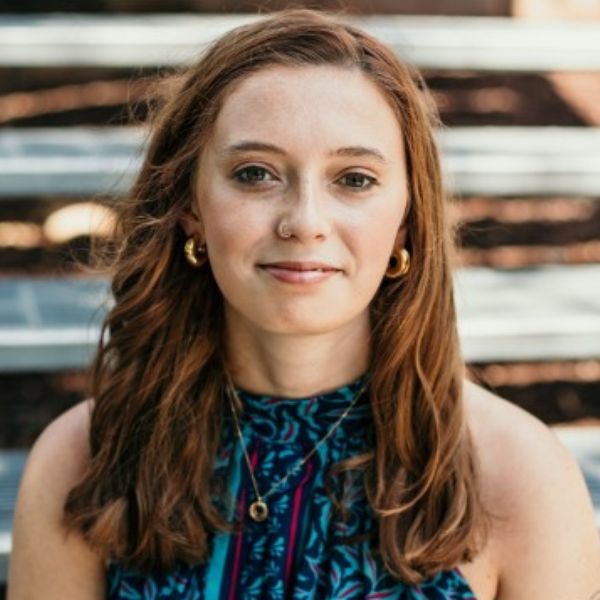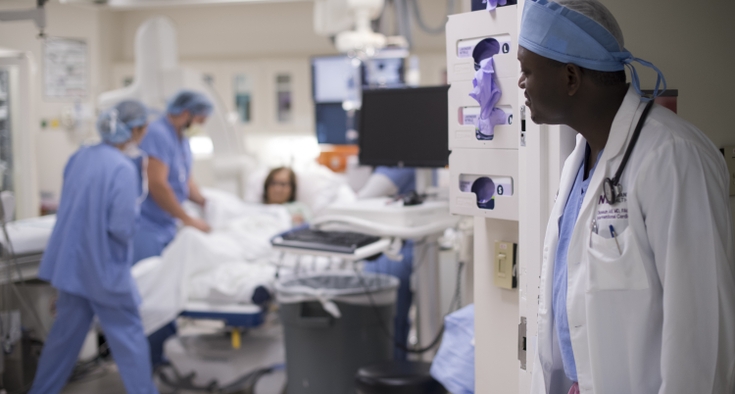For the first time, patients in the Triad have access to life-changing left ventricular assist device (LVAD) surgery at Novant Health Heart & Vascular Institute at Novant Health Forsyth Medical Center, making it the second Novant Health site to offer this advanced therapy and expanding access to leading-edge heart failure care across the Carolinas.

Leading the expansion is Dr. Jesse Madden, a cardiothoracic surgeon who completed 150 LVAD implants in Western North Carolina. He brings extensive experience in building successful LVAD programs from the ground up, expertise he now applies to the development of Novant Health Cardiothoracic Surgeons' advanced heart care services.
Having the implant available ensures that patients in the Triad no longer need to travel for the surgery, which requires a hospital stay of two to three weeks.
As of September 2025, Novant Health physicians at Novant Health New Hanover Regional Medical Center in Wilmington successfully performed 12 LVAD surgeries and Novant Health Forsyth Medical Center has completed two.
“Our team can put an LVAD in and increase your life span by 6-8 years,” said Dr. John Rommel, an advanced heart failure and transplant physician who works at the Novant Health Heart & Vascular Institute in Wilmington. “This surgery can help you live longer and feel better.”
As the Novant Health Heart & Vascular Institute expands to the Triad, so does its specialized capabilities for supporting patients in end-stage heart failure.
Now that Madden has joined the team at Forsyth Medical Center, he brings his expertise in not only LVAD transplants but extracorporeal membrane oxygenation (ECMO) devices, too. “ECMO is a short-term solution that helps bridge the gap between critical condition and recovery,” Madden said. “LVAD is a long-term mechanical support for someone who is not currently a heart transplant candidate.”
Both can save the lives of patients in acute heart failure, which, without assistance from either ECMO, LVAD or both, can be deadly in a short span of time.
“We’re giving patients a fighting chance with LVAD implants and other assistive devices,” Madden said.
In addition, Madden brings the capability to fully treat atrial fibrillation with surgery in conjunction with an electrophysiologist, and his expertise contributes to Forsyth Medical Center’s expanding range of heart and vascular services, including a new heart failure clinic that opened in late 2024.
Novant Health’s infrastructure spans preoperative, operative and postoperative capabilities for successful LVAD implantation and management.
Since 2016, the Novant Health team has worked to:
● Master the fundamentals of managing outpatient and inpatient heart failure.
● Improve the management of nonmechanical durable support, including the Impella 5.5 and balloon pumps.
● Receive accreditation to provide LVAD surgery.
● Start to find the right patients for the surgery.

“This isn’t provided everywhere because what you really need is infrastructure,” said Rommel.
“It’s not one-and-done surgery, where it’s performed once, and the patient is fine for the rest of their life and never needs to be seen again. There’s really that connection between the patient and the hospital.
The patient has to commit to holding up their end of the bargain, and the physician has to commit to holding up their end of the bargain. That means being available 24/7, having heart failure support and surgical support. Not everyone is equipped to have that infrastructure in place.”
Patients need to meet specific criteria to qualify for LVAD implantation.
Now that Forsyth Medical Center has the infrastructure to support LVAD implantation, its experts are looking to serve people in the Triad who previously couldn’t access LVAD technology.
Patients considered for LVAD typically present with worsening symptoms despite optimal therapy, end-organ dysfunction or medication intolerance. Specific criteria for referral include ejection fraction under 25%, NYHA Class IV symptoms, and low cardiac output. LVAD is especially considered when transplant is not an option. “This procedure is designed for Class IV Heart Failure patients in acute heart failure,” Madden said.
There are also reasons a patient might not qualify, including lack of social support, comorbidities and absolute contraindications, such as hemodialysis and certain neurological disorders.
Every program may have absolute and relative contraindications and qualifiers that differ slightly, so if you’re interested in referring a patient, it’s best to reach out to the program coordinators at your local program to get a comprehensive list.
LVAD implants can be a long-term solution for heart failure patients who are not transplant-eligible.
When LVADs were first used, they were treated as devices that would bridge the gap between advanced heart failure and transplant. Now, they’re approved as a long-term solution of their own.
“The majority of patients I see are not transplant eligible,” Madden said. “There are also a shortage of transplant options. If they are a good candidate for a transplant, we’ll recommend that.”
The goal of LVAD surgery is to ensure patients feel better than they did before.
Patients generally experience quality of life improvements at three months post-implantation. “These patients are able to walk farther, to breathe better, to safely stay out of the hospital, to go back to work, to do things they want to do,” Rommel said.
Some lifestyle limitations come with an LVAD implant.
Patients now have a power cord coming out of their sides that is essentially their lifeline. Any kind of submersion in the water is off limits, although showering is fine. LVAD recipients will also be on a blood thinner the rest of their lives, and they always have to carry a device with them – and an extra set of batteries and a spare controller for their LVAD on hand, just in case.
Patients who receive an LVAD implant are supported by a complete care team at Novant Health, in addition to their heart failure clinician and cardiothoracic surgeon.
Care starts with prehabilitation prior to surgery and continues during the two to three weeks of postoperative hospitalization.
● Cardiac rehabilitation experts and physical therapists support the patient before and after their surgery with focuses on strength, nutrition and motivation.
● Operating room staff and anesthesiologists are prepared for any scenario during surgery.
● Cardiovascular ICU nurses are at the bedside nonstop during recovery.
● Respiratory therapists are on standby for any complications with anatomy and vasculature after surgery.
Patients are empowered to manage the LVAD on their own.
“The team trains the patients, getting them ready for the next step in their care,” Rommel said. “Every day, the team gets them to do a little more of the LVAD management themselves. Every day, the team gets them to push their physical limits a little bit.”
Once home, patients work with their heart failure physician to get healthier and stronger.
“We make sure to get their fluid levels right, to build back strength and nutrition, and to get them back on their medication regimen to protect their heart, including blood thinners and heart failure medications,” Rommel said. “We’re watching for rhythm issues, bleeding issues and infection issues throughout the process.”
The Novant Health team will continue to expand LVAD implantation in 2026.
Heart & Vascular Care
Open Hearts. Open Doors.
Novant Health is committed to expanding access to high-quality advanced heart failure care across the Carolinas. In Wilmington, shared-care programs and new clinicians continue to grow LVAD capacity, including Darryl Hampton, an acute care nurse practitioner, and Dr. Jeko Madjarov, a thoracic and vascular surgeon.
In the Triad, new outpatient and inpatient consultative services, expanded multidisciplinary teams, and continued infrastructure investment are laying the foundation for a robust program in 2026 and beyond.
“We want to get this option in front of as many patients as appropriate and make sure they understand the choices they have,” Rommel said. “The tragedy is when people get too sick before they make a choice. We want to expand the number of clinicians who are comfortable managing these devices and make sure the medical community is prepared to care for these patients when they return.”
Our Connected Care Commitment
Our referral process is designed to save you time and improve patient care by reducing the obstacles you face every day – such as patients waiting weeks to be scheduled, repeated phone calls and unclear next steps.
- Save time. One centralized eFax handles referrals to all our North Carolina specialists.
- Accelerate care. Patients can get from referral to treatment with appointments available in as little as 48 hours.
- Higher patient satisfaction. Our optimized schedules and workflows create more appointment options for a smoother patient experience.
- Reduce administrative burden. Our process frees your team to focus on care, not coordination.
- 24/7 behavioral health. Patients can call 800-718-3550 anytime, with referral outreach within 48 hours.
Contributing Subject Matter Experts:









